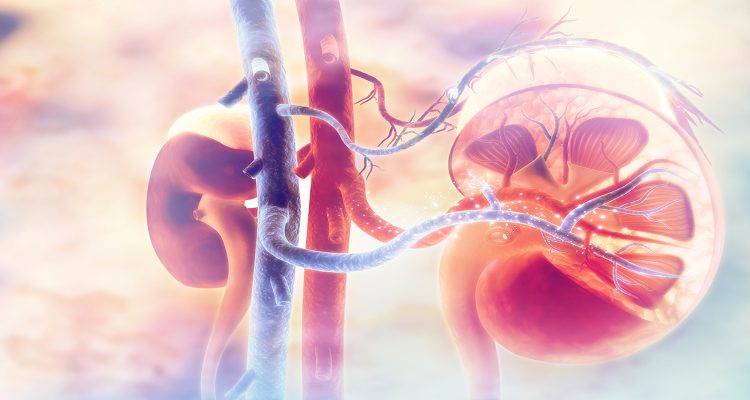Before we get into the hows of kidney transplants we should clear out the whys of kidney transplant programs in Pakistan. Usually, people survive on dialysis and turn out to be good in health. But in rare cases, there comes a point where you must look for a kidney transplant. This usually happens when the costs of dialysis get out of hand. Sometimes the patients have to travel a long distance to get dialysis services.
Fortunately now in Pakistan, we have a lot of good nephrologists, and teams based on kidney specialists that have hands-on national and international experience. To get enlisted in such programs the patient has to go through many steps. To make this complicated procedure easy for Pakistani patients here’s a thorough guideline to get enlisted in the kidney transplant program in Pakistan.
Kidney Transplant Evaluation:
After the patient signs up for the kidney transplant program in any hospital in Pakistan, it gets mandatory to get evaluated for better results after the transplant. These tests are based on a series that shows doctors the best data to assess their treatment options.
During these tests, you will be evaluated for heart-related diseases, infections, bladder dysfunction, any kind of ulcer, and obesity. Meanwhile, it is recommended for the patients to sort out their transportation, housing, and financial costs. It’s better done before rather than after, and it saves time and helps not to get messed up.
When signing up for a kidney transplant program make sure that the patient has their medical history records. They should be organized and set up in a timeline format. So, that medical professionals and nephrologists could gather the most information and prepare their course in the most productive way.
Physical Exam For Kidney Transplant Program:
All the best nephrologists in Pakistan conduct a thorough physical exam of the patient enlisted in the kidney transplant list. They do this because they have to make sure, that the patient is healthy enough for the transplant surgery. They examine all of the major organs and body parts.
Psychosocial exam For Kidney Transplant Program:
A psychosocial exam is conducted by the renal transplant team. It is done to fathom whether the patient is emotionally prepared to live with a new kidney or not. In this process, the family of the patient is also involved. Doctors’ team affiliated with the renal transplant preps the patient’s team for the journey of the transplant and its aftermath.
Compatibility Tests For Renal Transplant:
In this test, the patient is analyzed for their blood type and tissue type. Then this data is matched with the donor’s list in order to find a suitable match. During the compatibility tests, the blood samples are analyzed. Mostly, the blood groups are matched with donors’ blood groups but sometimes getting a transplant from an incompatible blood type is also possible. In such cases, additional medical treatment and care are required. The additional care reduces the risk of renal rejection.
Tissue Typing For Renal Transplant:
In this test, the patients’ tissues are compared with the donor’s tissues. If found as a good match the renal rejection risk minimizes. This technique is based on mixing the HLA from donor’s blood cells with serum-containing anti-HLA antibodies.
Crossmatching For Kidney Transplant:
Our bodies make the substances called antibodies that attack and destroy foreign substances invading our bodies. Usually, these substances keep us from being sick and work for our benefit securing us from all kinds of infections and diseases.
The same antibodies will try to destroy the donor’s kidney transplanted into your body. Now the nephrologist’s team has to determine whether the patient has antibodies to the donor or to apply treatments to remove antibodies.
Kidney Transplant Surgery Procedures In Pakistan:
In kidney transplant surgery patient is never awake. The anesthesiologist makes sure to keep the vitals in check and general anesthesia is performed. Then surgical team performs the surgery keeping the heart rate, blood pressure, blood pressure, and blood oxygen level throughout the procedure.
During the surgical process, the surgeon makes an incision in the lower part of the abdomen of the patient. After replacing the sick kidney with a new one, blood vessels are attached. This whole surgical process of kidney transplantation takes about 4 hours.
Aftermath Of Kidney Transplantation:
The long-term success of kidney transplantation depends on various factors. Even after the transplant operation, the patient is advised to stay in the medical facility for individual care. Their anti-rejection medicines are given to the patient for being a good host to the foreign organ. The new kidney is attacked by the patient’s body and doctors pay close attention to this process to keep the rejection rate as minimum as it could be.
For making sure that the new kidney is working properly. The doctors conduct many tests keeping the blood pressure and other factors related to the kidney in check. Moreover, a healthy lifestyle is recommended for the patients. This healthy lifestyle includes good nutrients rich diet backed by doctors’ recommended exercise.
Precautions After Kidney Transplant:
There are several alarms that the patients can use as pointers to visiting their nephrologist. One of the alarms is when the patient gets flu or pneumonia. It is recommended by the best nephrologists to use antimicrobial soaps to wash hands in the flu season to avoid any infectious substances.
Furthermore, the patients are always advised to report their doctor in case of any soreness, wounds, or injuries. Among these problems, the crucial ones are those that just won’t heal in time. Also, when urinating the patients should notice any kind of abnormalities. Such as the urine smell, cloudy or reddish urine, whether there is burning or discomfort when peeing the patient must report to the doctor. This keeps the recovery procedure intact.









